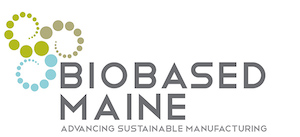Blog
11/6 Mobile Pyrolysis of Wood Chips in WA
A 20-ton per day mobile pyrolysis unit is being used in Washington State to perform pyrolysis on wood chips near the place where they’re generated. Pyrolysis chemically decomposes organic matter (like wood chips) with heat but without oxygen. Turning small trees into a potentially useful feedstock is the first step. The second step is finding a use for…
Read MoreOct 31 Grow-Tech Announces BioStrate, Its Newest Hydroponic Growing Medium
Grow-Tech, a member partner of the Sustainable Bioplastics Council of Maine, recently announced the release of BioStrate Felt™, “a biobased textile specifically engineered for the growing of hydroponic microgreens and baby salad greens. BioStrate Felt™ was developed in-house with the support of USDA funding and is manufactured in Maine. The blend of biopolymers and natural fibers is…
Read MoreGLOBEco to Manufacture Wood Fiber Cloths in Dover-Foxcroft
GLOBEco Maine makes a paper towel alternative that is compostable and more sustainable — and they want to manufacture these towels in Dover-Foxcroft. GLOBEco’s Chief Technology Officer, Bob Chiosi, said the benefits of manufacturing in Maine are reduced transportation costs and carbon footprint. Spun wood fiber from Canada would be woven, treated, cut, sown, and…
Read MoreOct 27 Biobased Materials + Chemicals Market $1b in 2014
According to Lux Research, the market for biobased materials and biobased chemicals will attract nearly $1b in investment in 2014. This represents a 28% increase from 2013.
Read MoreOct 24 DOE Announces Funding for Cellulosic + Landscape Design
The Department of Energy (DOE) just issued a funding opportunity entitled “Landscape Design for Sustainable Bioenergy Systems.” DOE is looking for interdisciplinary projects that integrate cellulosic feedstock production with landscape design in existing agricultural/forestry system. Available funding is capped at $14 million.
Read MoreOct 24 FBRI Hired to Explore Trashanol for 187 Maine Towns' MSW
The University of Maine’s Forest Bioproducts Research Institute (FBRI) has been hired by a consortium of 187 Maine towns to determine if technology developed by Fiberight could be an option for the state’s waste. Fiberight distills municipal solid waste into ethanol, biogas or compressed natural gas. The fuel product made from garbage is called Trashanol, a name copyrighted by…
Read MoreOct 24 FBRI Hired to Explore Trashanol for 187 Maine Towns’ MSW
The University of Maine’s Forest Bioproducts Research Institute (FBRI) has been hired by a consortium of 187 Maine towns to determine if technology developed by Fiberight could be an option for the state’s waste. Fiberight distills municipal solid waste into ethanol, biogas or compressed natural gas. The fuel product made from garbage is called Trashanol, a name copyrighted by…
Read MoreOct 23: Global Bioplastics Market Valued at $3.94 Billion
The size of the growing global bioplastics market is now valued at $3.94 billion, according to a recent report. As companies are increasingly faced with high raw material costs, volatile crude oil prices, consumer demand for more responsible products, and increasing regulation of toxic chemicals, the market for bioplastics will continue to grow.
Read MoreOct 23: Landfills Out. Municipal Solid Waste to Energy IN.
The City of Edmonton, Canada is upping the ante on the percentage of its waste that’s converted into other materials – from 60% to 90% (a world-leading level). The company Enerkem has developed technology to aggregate, sort, and clean municipal waste and convert it into methanol. Instead of $90 per ton to landfill the waste,…
Read MoreOct 20: Biofuel Companies know Ethanol Isn't Enough
“Biofuel Companies Look Beyond the Gas Tank.” According to this recent article in the New York Times, biofuel companies are diversifying their output of bioproducts. The ethanol market, which is saturated and threatened by the uncertain outcome of federally-mandated blending rules, does not provide enough incentive anymore. There needs to be a higher value-added product. As…
Read More